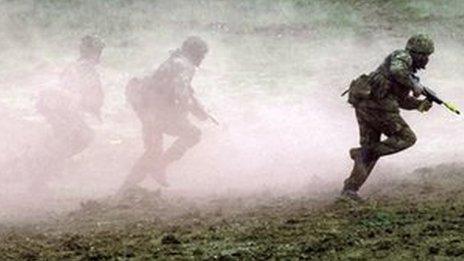Cutting of 17 Army units faces criticism
- Published
Defence Secretary Philip Hammond: "These reductions will fall across the various arms are services of the Army"
Government plans to cut the Army by 17 major units and 20,000 regular soldiers by 2020 have been criticised by MPs and former soldiers.
Labour said they were short-sighted and could put the UK at risk, while the Welsh First Minister described cuts to the Royal Welsh as a "severe blow".
But Defence Secretary Philip Hammond said the Army would be a "forward-looking, modern fighting machine".
Four infantry battalions are among the units to be scrapped.
The number of regular soldiers is set to fall from 102,000 to 82,000, while reservists will double to 30,000.
The Army will be about half the size it was during the Cold War era - it had more than 163,000 troops in 1978.
'Flexible and agile'
Shadow defence secretary Jim Murphy described the plan as a "military gamble" which would leave Britain with its smallest army since the Boer War.
"Jobs and military capability have been lost and tradition and history have been sacrificed," he said.
"This isn't just a smaller Army, it's also a less powerful Army in a less influential nation."
The four infantry battalions to disappear are the 2nd Battalion the Royal Regiment of Fusiliers, the 2nd Battalion the Yorkshire Regiment (Green Howards), the 3rd Battalion the Mercian Regiment and the 2nd Battalion the Royal Welsh.
A fifth infantry battalion, the 5th Battalion the Royal Regiment of Scotland (Argyll and Sutherland Highlanders), will become a single company to carry out public duties in Scotland.
The Armoured Corps will be reduced by two units with the mergers of the Queen's Royal Lancers and the 9th/12th Royal Lancers and the 1st and 2nd Royal Tank Regiments.
The Royal Artillery, the Royal Engineers, the Army Air Corps, the Royal Logistic Corps, the Royal Electrical and Mechanical Engineers and the Royal Military Police will also be affected.
In the infantry, Mr Hammond said, no current regiments or cap badges would be lost.
He said: "After inheriting a massive overspend from the last government, we have had to make tough decisions to implement our vision of a formidable, adaptable and flexible armed forces.
"After a decade of enduring operations, we need to transform the Army and build a balanced, capable and adaptable force ready to face the future."
The restructuring was drawn up under a plan by Lt Gen Nick Carter, and referred to as Army 2020.
'Innovative solution'
Former head of the Army, Gen Lord Dannatt, warned that relying so heavily on reservists was "risky".
"We all recognise that placing more emphasis on the reserves is a good idea in theory but it has got to be made to work and more resources have got to be made available to the Territorial Army," he said.
Tory MP Patrick Mercer, a former army officer, said the reduction in manpower was mistake.
"It probably comes down to whether manpower should be cut or whether equipment programmes should be cut. I believe that equipment should go before manpower - it's our most precious resource."
But Gen Sir Mike Jackson, a former head of the Army, said the plans were an "innovative solution".
"There is nothing on the horizon specific and yet we know it's an uncertain and unsettled world: what will the Army next be asked to do? None of us know the answer to that question.
"And so what is required is a force structure which is balanced and flexible as it can be and I do believe Army 2020 has succeeded in coming up with a proposition which makes sense."
Details of the other changes are:
The Royal Artillery will be reduced from 13 to 12 units with the withdrawal of the 39th Regiment Royal Artillery
The Royal Engineers will be reduced from 14 to 11 units with the withdrawal of 24 and 28 Engineer Regiments and 67 Works Group
The Army Air Corps will reduce from five to four units as 1 Regiment AAC merges with 9 Regiment AAC
The Royal Logistic Corps will be reduced from 15 to 12 units with 1 and 2 Logistic Support Regiments withdrawn from the Order of Battle and 23 Pioneer Regiment disbanded
The Royal Electrical and Mechanical Engineers will be reduced to seven units with the withdrawal of 101 Force Support Battalion
5 Regiment Royal Military Police will be removed
Prime Minister David Cameron said the larger reserved force would mean the UK still had the Army it needed.
"We're actually putting £1.5bn in to make sure we recruit those territorials, and we have actually an army overall at 110,000 that's pretty much the same size as the one that we inherited.
"It's a better balance, it can make sure we meet all of our defence needs, and at the same time make sure we've got a balanced defence budget going forward."
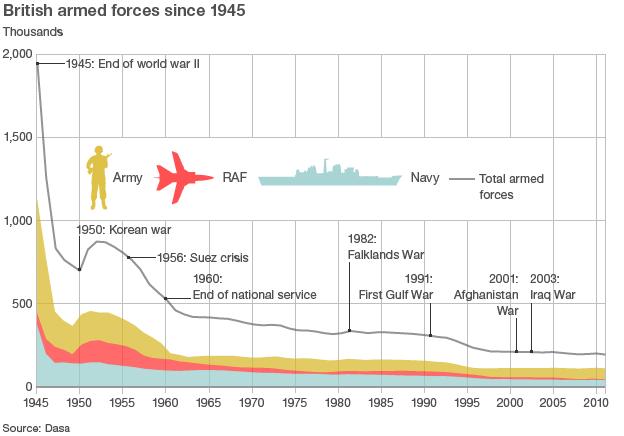
- Published5 July 2012
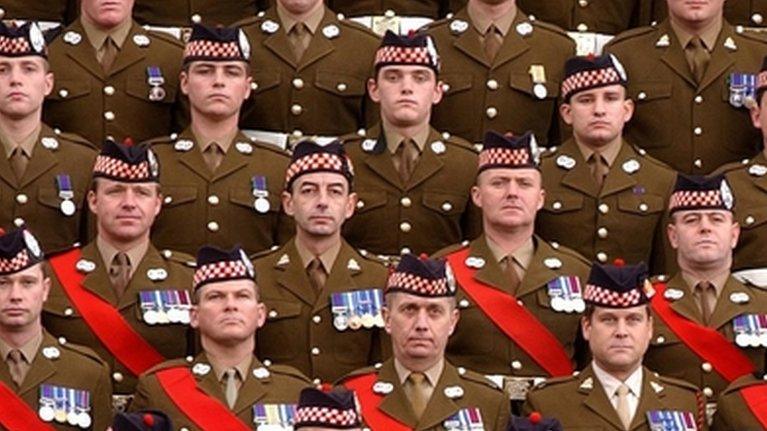
- Published5 July 2012
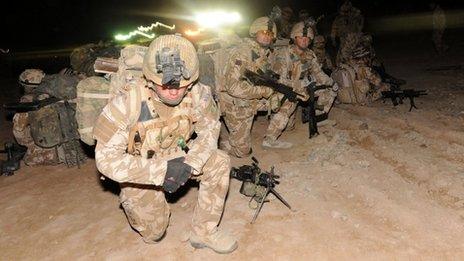
- Published5 July 2012
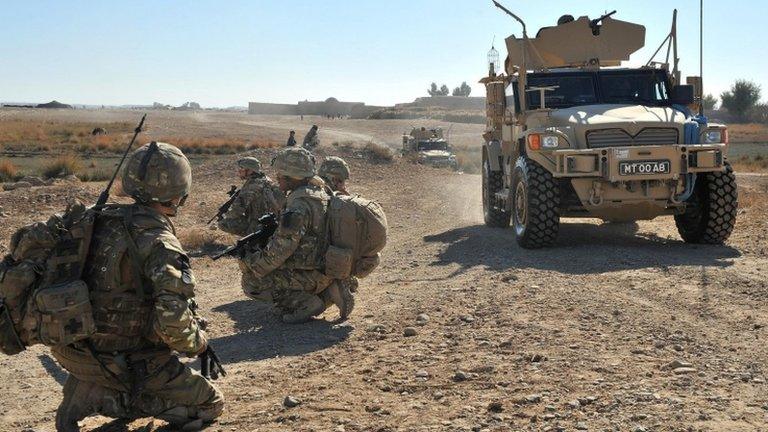
- Published3 July 2013
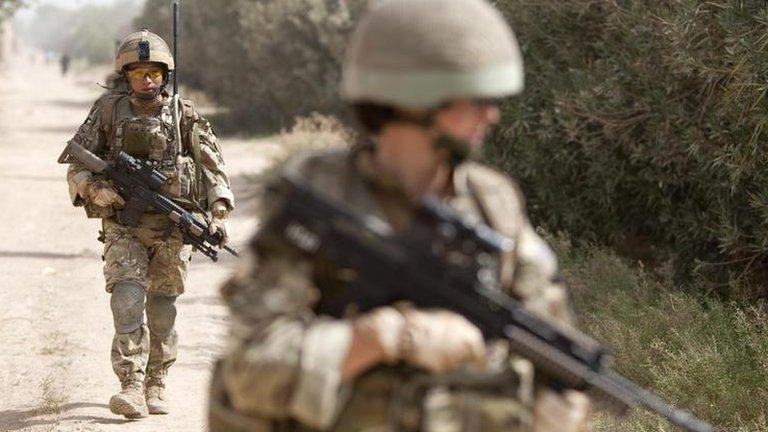
- Published3 July 2012
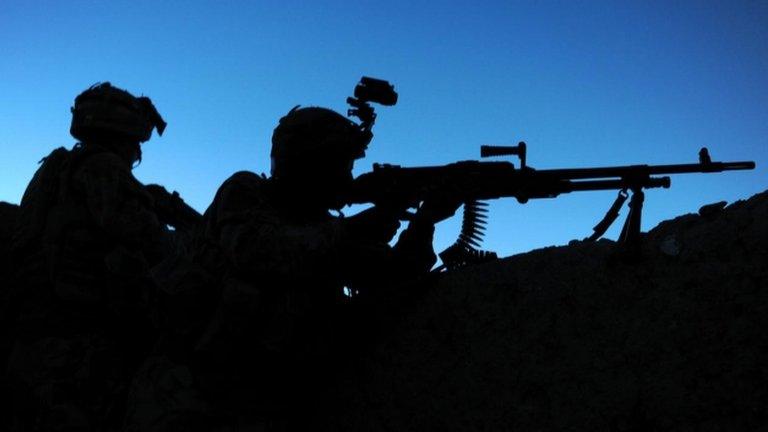
- Published7 June 2012
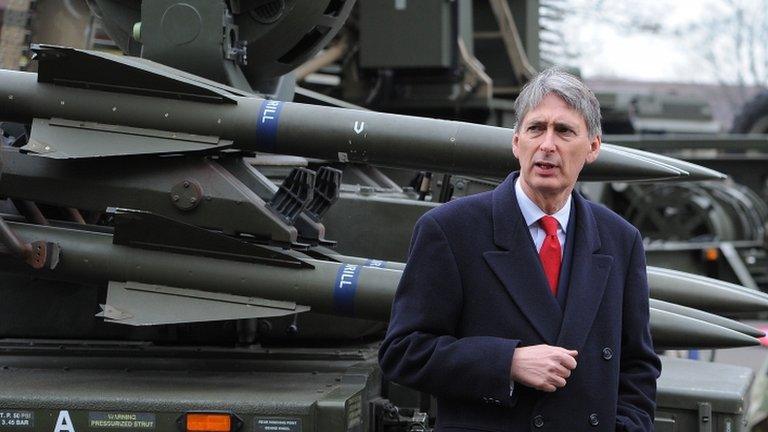
- Published25 May 2012
